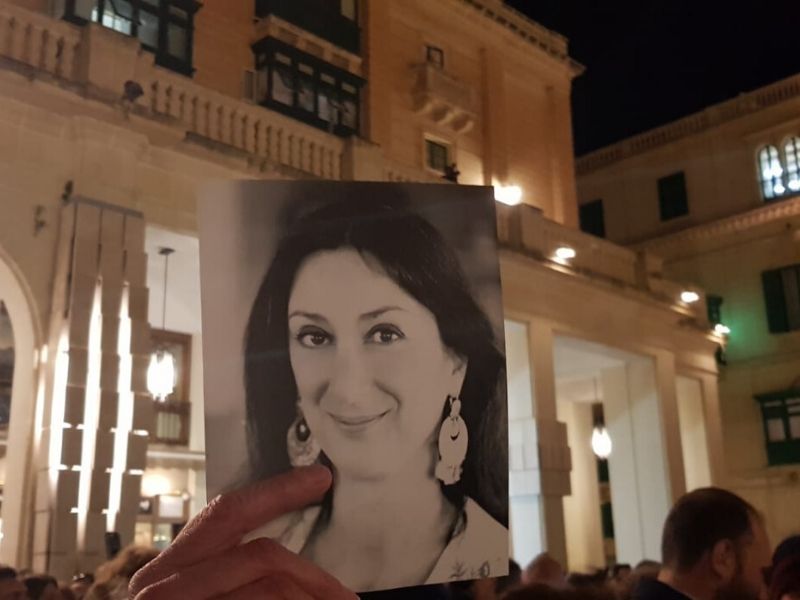Threats, harassment, imprisonment and the murder of journalists is no longer limited to countries at war but is taking place in democratic states with the main victims being local journalists in a context where impunity is on the rise, according to the International Federation of Journalists’ (IFJ) annual report.
Journalists who report on abuses of power, corruption and crime were the main victims of targeted violence and killings, according to the IFJ which is the largest association for journalists representing over 600,000 people in the profession.
Last year, 49 journalists were killed. Of these, two were in Europe: Lyra McKee who was shot while covering a riot in Derry, Northern Ireland, and Vadym Komarov who was killed following a violent attack by unidentified individuals in the centre of Cherkassy, Ukraine.
.@IFJGlobal Annual Killed list: two killed journalists in Europe in 2019 via @efjeuropehttps://t.co/Fu92UwlQ1W #Killed list
— Ricardo Gutiérrez (@Molenews1) February 4, 2020
For the first time since 2000, the number of murdered journalists dropped to a number below 50, according to the report. Despite a significant drop in the killings since the 20-year mark, the IFJ says this is a moment of reckoning:
“The fact that in a year of waning bloody conflicts, almost 50 killings of journalists were recorded in 18 countries from the four corners of the world stands out as a moment of reckoning in the campaign to end media crisis.”
Latin America had the highest number of deaths (18), followed by Asia-Pacific (12) and Africa (9), the Middle East and the Arab world (8) and Europe (2).
The report refers to the case of Daphne Caruana Galizia, saying “there are prospects of breakthrough” after the arrests of powerful figures in connection with her murder. The IFJ and its European arm, the European Federation of Journalists, had upped its calls for justice for her family in 2019.
Similarly, there were also arrests and charges in connection with the killing of Slovakian journalist Jan Kuciak in 2018.
The IFJ reiterated its call for a real commitment by governments to fight impunity for crimes committed against journalists and for media employers to provide safety training, insurance and equipment for their staff in the field.
It welcomed the good news in the Philippines on the issue of impunity with the guilty verdicts against the masterminds of the Mindanao massacre of 23 November 2009. This incident has been described as the single deadliest attack on the media with 32 journalists killed.
“These are all encouraging signs of the political will which is needed to address the issue of impunity for crimes targeting journalists. But it often takes the dogged campaign by the International Federation and their affiliates to move governments into action,” the report states.
These cases of success “remain few and far between and there is still a lot of work to do in the face of a sustained attack on media safety,” according to the report.
It also noted that the number of cases of impunity for the murder of journalists in Europe is on the rise. The Council of Europe’s Platform for the Protection of Journalism and the Safety of Journalists officially recorded 38 cases of impunity in Europe, including 14 murders and disappearances of Serb and Albanian journalists in Kosovo.
While the number of murders in Europe decreased, the cases of physical violence continued to increase. In 2019, the IFJ and its European counterpart recorded 137 serious violations of press freedom on the Council of Europe Platform, including nearly 80 cases of violations of the safety and physical integrity of journalists.
The cases filed included a cyber attack on The Shift in January 2019 following the publication of revelations on the Vitals Global Healthcare deal on three of Malta’s public hospitals.
Since the launch of the IFJ Killed list report in 1990, the federation recorded 2,530 deaths of journalists. The IFJ said it continued to work to “combat impunity by demanding that governments take responsibility for the lack of investigation into the murders of journalists and calls for an International Convention for the Protection and Safety of Journalists”.












